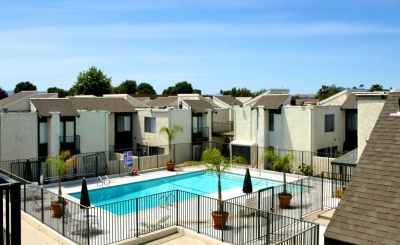Weakened rent control bill advances in Assembly

Opponents of rent control and new restrictions on how landlords treat tenants succeeded in either weakening or blocking bills that needed to advance last week to have a chance of being enacted this legislative session.
Coming seven months after voters decisively rejected Proposition 10, a statewide rent control measure, the setbacks were a fresh reminder of the limited political clout of renters – even in a state where millions of residents’ complaints about the cost of housing are a constant of life.
Assembly Bill 1482, by Assemblyman David Chiu, D-San Francisco, was the focus of the most wrangling. Inspired by a similar law newly adopted in Oregon, the original bill would have limited annual rent increases to 5 percent plus the federally reported increase in California’s consumer price index. It had a 2030 sunset clause.
But after intense opposition by the California Association of Realtors and other business groups who said it would discourage housing construction in a state with a huge housing shortage, Chiu agreed to concessions that were so significant that most critics took a neutral stand on his bill, starting with Realtors.
It now limits rent increases to 7 percent plus consumer price index inflation and sunsets in 2023. It also doesn’t apply to housing projects built in the last 10 years or to landlords renting 10 or fewer units.
The bill doesn’t apply to housing units in areas where local rent-control laws are in place and puts no limit on how much rent can be increased after a tenant moves out.
But even with Chiu’s concessions, AB 1482 still only got the votes of 43 of 80 Assembly members. Chiu’s fellow Democrats made up the big majority of the 31 no votes. Even with reduced business opposition, the bill may not make it through the state Senate.
Tenant protection bill fails without getting committee vote
Yet it still fared much better than Assembly Bill 1481, by Assembly members Tim Grayson, D-Concord, and Rob Bonta, D-Alameda, which would have set up a “just cause” bureaucratic process that most landlords would have to follow to evict tenants for reasons other than failure to pay rent, property damage or repeated violations of rules. The process would have required landlords to provide a written reason for the eviction, then give renters an opportunity to correct problems that were cited.
“If landlords wanted to move into the property, intend to remodel it or were seeking eviction for other circumstances that were not tenants’ fault, property owners would in most cases have had to provide relocation assistance,” a Los Angeles Times analysis noted.
AB 1481 never even come up for a committee vote, reflecting a lack of enthusiasm for the bill by the Assembly’s Democratic leaders.
In a statement issued by Grayson, he praised the Assembly for passing the rent-control measure, but said “rent-gouging protections are not enough when tenants can still be evicted without cause or due process.”
AB 1482 did include one notable tenant protection. It says landlords of properties covered by the bill cannot seek evictions solely because they want to raise rent by more than the measure allows.
Meanwhile, an aide to Gov. Gavin Newsom said he was pleased by the measure’s passage. Newsom called for lawmakers to enact some form of rent control in a February speech and again in April.
2018 rental data suggest bill will have limited effect
But rental statistics for 2018 compiled by the RENTCafé website suggest AB 1482 won’t necessarily have a substantial effect on landlords. According to the state Department of Finance, California had a 3.7 percent increase in its consumer price index in 2018. (Federal figures for the Golden State were not available.) That means under Chiu’s bill, landlords probably could have raised rates by about 10.7 percent in homes covered by AB 1482.
But according to RENTCafé data, that’s much less than the average rent increase seen in the California cities with the highest percentage hikes in 2018 – Los Angeles (6.6 percent), Fresno (5.7 percent), Riverside (5.6 percent) and Long Beach (5.5 percent).
Chris Reed
Chris Reed is a regular contributor to Cal Watchdog. Reed is an editorial writer for U-T San Diego. Before joining the U-T in July 2005, he was the opinion-page columns editor and wrote the featured weekly Unspin column for The Orange County Register. Reed was on the national board of the Association of Opinion Page Editors from 2003-2005. From 2000 to 2005, Reed made more than 100 appearances as a featured news analyst on Los Angeles-area National Public Radio affiliate KPCC-FM. From 1990 to 1998, Reed was an editor, metro columnist and film critic at the Inland Valley Daily Bulletin in Ontario. Reed has a political science degree from the University of Hawaii (Hilo campus), where he edited the student newspaper, the Vulcan News, his senior year. He is on Twitter: @chrisreed99.
Related Articles
France boosting taxes before Calif. vote
July 6, 2012 By John Seiler France voted to put in office a socialist who promised to jack up taxes
Deconstructing Prop 23
Katy Grimes: The propositions on the November ballot this year are no different than past elections – they confuse even
Bill tightening police use of force rules passes committee
California legislators moved a step closer last week to tightening the rules governing police use of force. In the face



